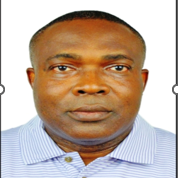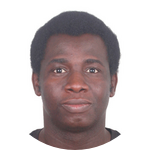About This Project
The high cost and energy requisites of carbon capture and storage (CCS) limit its broad use. Carbonic anhydrases (CAs) can accelerate CO2 capture, but they are currently unstable enough for use in CCS processes. We will employ a holistic and interdisciplinary approach to engineer ultrastable CAs using a combination of AI-powered computational modeling, nanotechnology, structural biology, and rational design. A successful ultrastable CA would reduce the cost and help mitigate climate change.
Ask the Scientists
Join The DiscussionWhat is the context of this research?
Atmospheric CO2 removal (CDR) and point-source capture (PSC) of CO2 are well-accepted as being necessary for successfully decarbonizing within climate goals (1). Direct air capture (DAC) is a CDR pathway with ideal verifiability and durability. Both DAC and PSC are cost constrained, primarily by the CapEx of the gas contactor and the energy required to drive large swings in temperature or pH to regenerate CO2 from the capture material (2).
Those high cost and energy requirements are driven by a thermodynamic trade-off between the rate of CO2 absorption and the CO2 regeneration energy: CO2 capture materials with high absorption rate, which reduce cost by reducing the gas contactor size, typically have high CO2 regeneration energy, and vice versa (3).
What is the significance of this project?
Carbonic anhydrases (CAs) catalyze fast CO2 absorption in solvents with low CO2 regeneration energy, resolving the tradeoff described above (4). CA could reduce DAC and PSC cost by reducing parameter swing size or gas contactor size, if it were stable in DAC or PSC processes that may include high pH, temperature, or ionic strength. E.g., thermostable CA via protein engineering (PE) can already reduce PSC cost >30% (5,3).
AI-driven PE and screens of many natural variants are revolutionizing PE but haven’t been applied to CA. Ultrastable CAs produced using those tools likely could reduce DAC and PSC cost substantially. While modeling is needed to quantify application-specific benefits and target CA properties, PE for ultrastable CA can begin now and later be adapted to specific uses.
What are the goals of the project?
While modeling analyses are ultimately required to provide target properties for ultrastable CAs to be used in development of novel CA-enhanced DAC and PSC, initial efforts to use AI-based PE and screens of many variants should target many-fold CA stability improvements compared to the state-of-the-art while retaining high activity (kcat/kM ~108 M-1s-1). For a comprehensive discussion of state-of-the art CA engineering and performance, see (6) and (4).
Examples of the state of the art are:
temperature stability
pH stability
90% activity retention after 24 hrs at pH 11.0 (9)
Stability demonstrations should be performed in solvents relevant to DAC and PSC, such as 10-20% K2CO3.
Budget
There is currently no existing or other expected funding for this project. Therefore, the budget is strictly in anticipation of this grant being applied for. The prospective funding will drive the entire project.
 Project Timeline
Project Timeline
- Year 1: Develop and validate computational models, generate a library of CA variants with improved stability and catalytic activity.
- Year 2: Screen CA library, perform structural and biophysical analysis CA stability, with detailed understanding obtained
- Year 3: Design and engineer new CA variants, and develop a scalable production method for ultrastable CA variants
- Year 4: Validate ultrastable CA variants for biotech application, and prepare publications and patents.
Jan 01, 2024
Develop and validate computational models for predicting CA stability and catalytic activity
Jul 01, 2024
Generate a library of CA variants using forward genetics and DNA barcoding/tagging
Jan 01, 2025
Screen the CA library for variants with desired properties (enzyme activity, temperature stability, pH stability, etc.) using the NanoCAGE-DE platform
Jul 01, 2025
Perform structural and biophysical analysis of selected ultrastable CA variants
Jan 01, 2026
Design and engineer new CA variants with even greater stability using rational design
Meet the Team
Affiliates
Affiliates
Affiliates
Affiliates
Affiliates
Affiliates
Team Bio
Our expertise and common interest in ultrastable CA enzymes have brought us together at the University of Nigeria, Nsukka. The skill set our team brings to this project includes genetics, protein chemistry, genome editing, advanced microscopy, and computational protein design. Additionally, our areas of specialization encompass environmental chemistry and sustainability, analytical chemistry, environmental microbiology, pollution assessment, quality control, and health and safety.
Arome Solomon Odiba
A geneticist and protein chemist with a passion for using computational biology and genome editing to investigate the roles of natural proteins and their variants in microbes, plants, and animal models. My goal is to decipher the relationship between protein structure and function, enabling me to engineer proteins for specific purposes. I earned a B.Sc. in Biochemistry (2010), an M.Sc. in Biomedicine, Proteomics, and Biotechnology (2014), and a Ph.D. in Molecular Biology and Genetics (2019) from the University of Nigeria, Nsukka. I bagged an Advanced Postgraduate Program certificate in Biochemistry and Genetics (2019) from Guangxi University, China. I received a Talented Young Scientist Program research grant from the Ministry of Science and Technology in Nanning, where I researched DNA repair and genome stability. I have an active postdoctoral research program at the Chinese Academy of Sciences, Beijing. I lectured at the department of Science laboratory technology, and currently lecture at the Department of Genetics and Biotechnology, University of Nigeria, with over 30 research publications (some of which are found at https://orcid.org/0000-0001-9581-0724). My expertise and experience in genome editing (particularly CRISPR-Cas9), advanced microscopy, and computational protein design make me well-qualified to lead this research project. I am highly motivated and passionate about this area of science because I believe that biotechnology has the potential to solve some of the world's most pressing problems, such as climate change. I am particularly interested in developing new ways to engineer proteins for specific applications. For example, the ultrastable CA enzymes that I propose to develop in this project could be used to capture and store carbon dioxide from the atmosphere, helping to mitigate climate change. I have the skills and experience necessary to successfully complete this research project. I am also a highly motivated and collaborative scientist.
Nwoke Stanley Ugochukwu
Nwoke Stanley Ugochukwu has a BSc. in chemistry, and an MSc. Analytical chemistry from the University of Nigeria Nsukka. He is a thoroughbred Analytical Chemist who develops methods for analysis and conducts quality control. He is proficient in the operation and maintenance of instruments such as GCMS, HPLC, FTIR and AAS. In addition, Stanley has a passion for molecular biology and is skilled in basic molecular biology techniques.
Chukwuemeka Cornelius Ezeh
Chukwuemeka Cornelius Ezeh has a BSc. in microbiology, and an MSc. in environmental microbiology from the University of Nigeria Nsukka. He is also a lecturer at the Department of Microbiology, University of Nigeria Nsukka. He is also skilled at molecular biology techniques, and is currently occupies the position of the head of research at the Central Science Research Laboratory, University of Nigeria Nsukka. Emeka’s expertise lies at the intersection of microbiology and molecular biology, making him adept at unraveling complex microbial processes and their ecological impact.
Chinedu Ekweremadu
Pharmacist Chinedu Ekweremadu
Chinedu is experienced in civil society advocacy, policy reforms, legislative lobbying. He has engaged with global and grassroot leaders to drive positive change. Chinedu has interest in strengthening environmental health and limiting the impact of climate change on pandemics like mosquito vector diseases
Affiliates
Society for planet and prosperity (SPP), Enugu state University of Science and Technology
University college London
University of Nigeria Nsukka
Anene Nwabu Moneke
Anene Moneke is a goal-oriented Professor of Industrial and Environmental Microbiology, with deep interest in sustainable activities that build capacity and protect our environment while creating profitable business enterprises. Moneke is a lecturer in the Department of Microbiology, University of Nigeria Nsukka, with over 15 years teaching and research experience. He is currently the Director, Centre for Environmental Management and Control, University of Nigeria, Nsukka, and the Chair Occupant of NNPCL/Shell JV Professorial Chair in Environmental Management and Control. He is also a United Nations Industrial Development Organization (UNIDO) RECP/TEST Expert on Circular Economy in Nigeria. His expertise can be instrumental in exploring and optimizing biological methods for CO2 capture and advancing the team's efforts in mitigating climate change
Google Scholar Citation links:
Nzereogu Ifesinachi Jennifer
Nzereogu Ifesinachi Jennifer is a dedicated Environmental Chemist with a passion for environmental sustainability, chemical security, environmental management, and safety. Her journey into the world of chemistry and environmental science began with her educational pursuits and has evolved into a remarkable career.
Committed to advancing her knowledge and expertise in environmental chemistry, Jennifer pursued a Master's degree in Environmental Chemistry at Nnamdi Azikiwe University, Anambra State, Nigeria. Currently, she is on a path to further academic excellence as she pursues her Ph.D. in Environmental Management and Control at the University of Nigeria, Nsukka, Enugu Campus (CEMAC).
For the past 13 years and counting, Jennifer has been a valuable member of the research community, serving as an Assistant Chief Scientific Officer in the Material And Energy Technology Department at the Projects Development Institute, Emene, Enugu, a research institute under the Federal Ministry of Innovation, Science And Technology. Her work at the institute focuses on addressing critical issues in environmental sustainability and chemical security, making significant contributions to environmental management and safety. Her stay at the research laboratory has allowed her to become well-grounded in various aspects of environmental Chemistry, Including pollution assessment, analytical techniques and sustainable environmental management.
Ifeanyi Adolphus Ucheana
Mr. Ifeanyi Adolphus Ucheana holds a BTech (Industrial Chemistry) from the Federal University of Technology Owerri, M.EM (Environmental Management) from Bayero University Kano, and a M.Sc. (Analytical Chemistry) from the University of Nigeria Nsukka. He is a Technologist at the University of Nigeria Nsukka and is currently working in the Analytical Chemistry Section of the Central Science Laboratory, UNN. He has extensive experience in household product development, quality control, health and safety, sample preparation and extraction techniques, and operation of various analytical instruments (GC-MS, GC-FID, HPLC-UV, FAAS, FTIR, etc.). He has also published a number of research articles is notable journals.
Researchgate link: https://www.researchgate.net/p...
Google Scholar: https://scholar.google.com/citations?user=yYUzNcYAAAAJ&hl=en.
ORCID: 0000-0002-3244-2618
Chukwuemeka Samson Ahamefule
Chukwuemeka Samson Ahamefule has an M.Sc and PhD degrees in Industrial Microbiology from the University of Nigeria, Nsukka, Nigeria. He is passionate about research and has been involved in several local and international research projects. His background in industrial microbiology equips him with knowledge of microbial processes and the ability to harness microorganisms for various applications. He has conducted some topical research works ranging from disease modeling to valorization of wastes from which he had published several manuscripts in high impact factor journals. He has won a number of merit awards. Dr. Ahamefule won the prestigious African Climate Change Adaptation (ACCAI-UNN) grant which was part of Open Society Foundation (OSF) support fund to address climate change and food insecurity in Nigeria.
Dr. Ahamefule is presently conducting research works on the production of biofuels from several waste substrates using yeasts and bacteria at the Department of Microbiology, University of Nigeria, Nsukka, where he is currently a Lecturer.
Project Backers
- 0Backers
- 0%Funded
- $0Total Donations
- $0Average Donation







